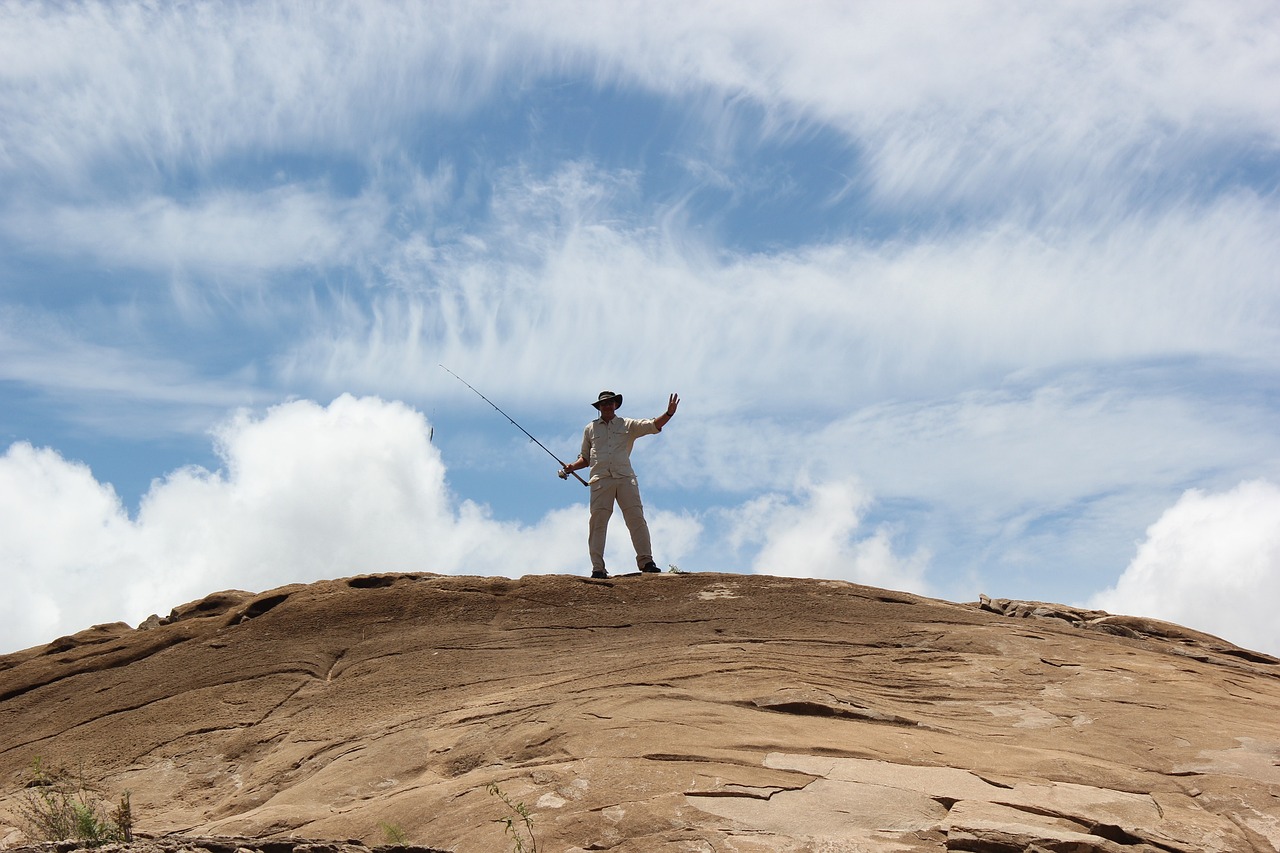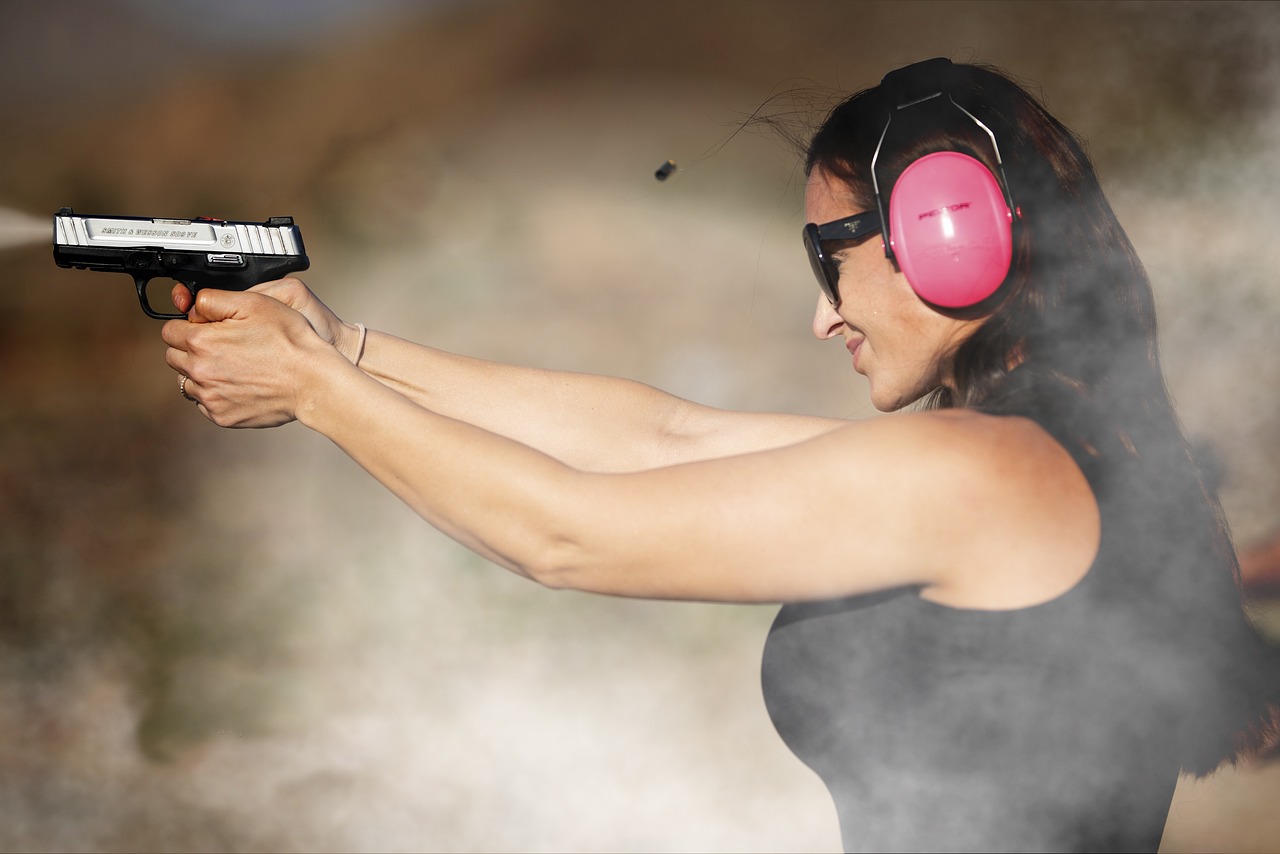Five Things to Avoid in a Self-Defense Situation
In today's unpredictable world, knowing how to defend yourself is more important than ever. However, there are critical mistakes that could turn a self-defense encounter into a disaster. Understanding these pitfalls can not only enhance your safety but also ensure that your actions are effective and lawful. Let's dive into the five things you should avoid in a self-defense situation to keep yourself and others safe.
First and foremost, responding with unchecked aggression can escalate a situation unnecessarily. Imagine walking into a bar where a minor disagreement is brewing. If you jump in aggressively, not only do you risk making the situation worse, but you also put yourself in danger. It's essential to maintain control and only act defensively when absolutely necessary. Think of it like a fire: sometimes, it just needs a little water, not a full-blown hose-down. By staying calm and collected, you can assess the situation better and respond in a way that minimizes harm.
Another critical mistake is ignoring your surroundings. In a self-defense scenario, being aware of your environment is crucial. Picture yourself in a crowded street; if you’re focused solely on the person threatening you, you might miss potential escape routes or nearby assistance. It’s like playing a video game where you’re so focused on the boss that you forget about the health packs lying around. Keeping your head on a swivel can significantly increase your chances of staying safe and finding a way out of a dangerous encounter.
Not accurately gauging the threat can lead to inappropriate responses. Understanding the severity of a situation allows for a more measured and effective self-defense strategy. For example, if someone is merely shouting at you, reacting as if they are physically attacking you could escalate the conflict unnecessarily. It's vital to assess whether the threat is real or just a moment of heated emotions. This nuanced understanding is what separates a wise defender from a reckless aggressor.
Overreacting to minor threats can create unnecessary conflict. You may find yourself in a situation where someone bumps into you and you immediately assume the worst. This knee-jerk reaction can lead to a confrontation that could have easily been avoided. It's important to distinguish between real danger and everyday confrontations. Think about it: not every interaction needs to be a showdown. Sometimes, a simple apology or a step back is all it takes to defuse a situation.
On the flip side, underestimating potential risks can leave you vulnerable. Recognizing potential dangers, even in seemingly safe areas, is vital for effective self-defense preparation. For instance, walking alone in a dimly lit area might seem harmless, but it's essential to be aware of your surroundings and the people around you. It’s like driving a car; you wouldn’t ignore the speed limit signs just because the road looks clear. Always keep your guard up and be prepared for the unexpected.
Having an inflated sense of your self-defense skills can lead to poor decisions. It’s crucial to understand your limitations to avoid putting yourself in unnecessary danger. If you’ve taken a few self-defense classes, that’s great, but it doesn't make you invincible. Just like a novice swimmer shouldn't dive into the deep end, knowing when to engage and when to retreat is key. Recognizing your strengths and weaknesses can help you make better choices in high-stress situations.
Failing to consider the legal implications of your actions can have lasting effects. Understanding the laws surrounding self-defense helps ensure that your actions are justified and lawful. For instance, if you use excessive force, you could find yourself facing legal consequences that outweigh the initial threat. It’s like playing chess; every move counts, and a single misstep can lead to checkmate. Familiarizing yourself with local self-defense laws is essential for navigating encounters legally and safely.
Being unaware of local self-defense laws can complicate situations. Each state or country may have different regulations regarding what constitutes self-defense. For example, in some places, you may be allowed to use force only if you feel threatened, while in others, the laws might be more lenient. This is why it’s vital to do your homework. Just as you wouldn’t travel without a map, don’t engage in self-defense without knowing the legal landscape.
Lastly, each self-defense situation is unique. Assuming a one-size-fits-all approach can lead to ineffective responses and increased risk during encounters. Just because you handled one situation well doesn’t mean the next will be the same. Think of it like cooking; just because you made a fantastic pasta dish doesn’t mean you can whip up a soufflé without a second thought. Adaptability is key—stay flexible and ready to adjust your strategy based on the specific circumstances you face.
- What should I do if I feel threatened?
Stay calm, assess the situation, and look for escape routes or assistance. - Is it legal to use force in self-defense?
Yes, but the level of force must be proportional to the threat. - How can I improve my self-defense skills?
Consider taking self-defense classes and practicing regularly. - What are the signs of a potential threat?
Look for aggressive behavior, someone invading your personal space, or unusual actions that make you feel uncomfortable.

Aggression Without Purpose
This article discusses critical mistakes to avoid during a self-defense encounter, ensuring safety and effectiveness. Understanding these pitfalls can help individuals respond appropriately in high-stress situations.
When faced with a potential threat, it's easy to let emotions take the wheel, leading to a reaction of unchecked aggression. However, responding with aggression without a clear purpose can escalate a situation unnecessarily. Imagine you're in a crowded place, and someone bumps into you. Instead of assessing the situation, you react by shouting or pushing back. What happens next? The confrontation intensifies, drawing attention and potentially putting you in a more dangerous position.
Maintaining control over your emotions is crucial. It’s essential to act defensively only when absolutely necessary. Think of self-defense as a chess game rather than a street brawl. In chess, every move counts, and you must anticipate your opponent's next steps. Similarly, in a self-defense situation, you need to evaluate the circumstances before making a move. This means recognizing when to stand your ground and when to de-escalate.
Consider the following points when dealing with aggression:
- Stay Calm: Take a deep breath and assess the situation before reacting.
- Evaluate Intent: Is the other person's aggression directed at you, or are they just having a bad day?
- Choose Your Response: Sometimes, the best response is to walk away or diffuse the situation verbally rather than physically.
By keeping your cool, you can often defuse a tense situation before it escalates. Remember, aggression can be like a fire; it can either keep you warm or burn your house down. It's all about how you manage it. So, the next time you feel the urge to lash out, take a moment to reflect. Is your aggression warranted? Are you truly in danger, or are you simply reacting out of frustration or fear?
Ultimately, the goal of self-defense is to ensure your safety, not to prove a point or assert dominance. By avoiding aggression without purpose, you not only protect yourself but also minimize the risk of escalating conflicts that could lead to serious consequences.
Being aware of your environment is crucial in a self-defense scenario. Ignoring potential escape routes or nearby assistance can hinder your ability to protect yourself effectively.
Not accurately gauging the threat can lead to inappropriate responses. Understanding the severity of a situation allows for a more measured and effective self-defense strategy.
Overreacting to minor threats can create unnecessary conflict. It's important to distinguish between real danger and everyday confrontations to avoid escalating situations.
Underestimating risks can leave you vulnerable. Recognizing potential dangers, even in seemingly safe areas, is vital for effective self-defense preparation.
Having an inflated sense of your self-defense skills can lead to poor decisions. It's crucial to understand your limitations to avoid putting yourself in unnecessary danger.
Failing to consider the legal implications of your actions can have lasting effects. Understanding the laws surrounding self-defense helps ensure that your actions are justified and lawful.
Being unaware of local self-defense laws can complicate situations. Familiarizing yourself with regulations can help you navigate encounters legally and safely.
Each self-defense situation is unique. Assuming a one-size-fits-all approach can lead to ineffective responses and increased risk during encounters.
Q: What should I do if I feel threatened?
A: Stay calm, assess the situation, and consider your options. If necessary, seek help or remove yourself from the situation.
Q: How can I improve my self-defense skills?
A: Consider taking self-defense classes, practicing situational awareness, and learning about local laws regarding self-defense.
Q: Is it ever okay to use aggression in self-defense?
A: Yes, but only when it is necessary to protect yourself from imminent harm. Always aim to de-escalate before resorting to aggression.

Ignoring Your Surroundings
When it comes to self-defense, one of the most critical mistakes you can make is . Picture this: you’re walking down a busy street, and your mind is elsewhere—perhaps you're lost in thought about your day or glued to your phone. Suddenly, a situation arises, and you find yourself unprepared. This scenario highlights why situational awareness is paramount. It's not just about being aware of potential threats; it's about recognizing your environment and understanding how to navigate it effectively.
Imagine you’re in a crowded area. If you’re aware of your surroundings, you can identify possible escape routes or even locate nearby individuals who could assist you in an emergency. Conversely, if you’re oblivious to what’s happening around you, you might miss crucial details that could help you react appropriately. For instance, knowing where the exits are or spotting a security guard can significantly influence your response in a tense moment.
Moreover, being aware of your surroundings allows you to detect subtle cues that something may be off. Is someone following you? Are there groups of people acting suspiciously? These observations can provide you with vital information that may help you avoid a confrontation altogether. It’s like being a detective in your own life, piecing together clues that keep you safe.
Here’s a simple yet effective way to enhance your situational awareness:
- Scan your environment: Take a moment to glance around every few minutes. Look for exits, potential threats, and safe spots.
- Trust your instincts: If something feels off, it probably is. Don’t ignore that gut feeling.
- Limit distractions: While it’s tempting to scroll through your phone, try to keep it in your pocket when you’re out and about.
In conclusion, ignoring your surroundings can be a dangerous gamble. By staying aware and engaged with your environment, you can significantly enhance your chances of effectively responding to any self-defense situation. Remember, it’s all about being proactive rather than reactive. So, the next time you step out, make it a habit to observe and assess your surroundings. It could make all the difference between safety and danger.
- What should I do if I feel threatened in public? Try to remain calm, assess your surroundings, and look for exits or safe places. Trust your instincts and don't hesitate to seek help from others.
- How can I improve my situational awareness? Practice regularly by observing your environment, limiting distractions, and engaging in activities that require focus, such as martial arts or self-defense classes.
- Is it necessary to be constantly aware of my surroundings? While it’s not feasible to be hyper-aware at all times, developing a habit of checking your surroundings periodically can greatly enhance your safety.

Failure to Assess Threat Level
In a self-defense scenario, one of the most critical mistakes you can make is the failure to assess the threat level accurately. Imagine walking into a crowded room and suddenly feeling a rush of adrenaline because someone bumps into you. Your heart races, and instinctively, you might want to react aggressively. But is that reaction justified? Understanding the difference between a minor inconvenience and a serious threat can be the line between safety and chaos.
When faced with a potential threat, it's essential to take a moment to evaluate the situation. Ask yourself: Is this person actually dangerous, or are they just having a bad day? This moment of reflection can prevent unnecessary escalation. For example, a person shouting angrily in public might seem threatening, but they could be venting frustration rather than posing a physical danger. By misjudging such a situation, you risk transforming a verbal confrontation into a physical altercation, which could have been avoided.
To help you better assess threat levels, consider the following factors:
- Body Language: Pay attention to the other person's posture and movements. Are they aggressive or defensive?
- Environment: Is the setting crowded, or are you isolated? Crowded places can often provide more escape routes.
- History: Have you encountered this person before? Previous interactions can inform your judgment.
Moreover, remember that not every confrontation requires a defensive response. Sometimes, walking away is the best option. A wise self-defense strategy involves knowing when to engage and when to retreat. By evaluating the threat level accurately, you can make informed choices that prioritize your safety without escalating the situation unnecessarily.
Ultimately, the ability to assess a threat accurately can save you from making rash decisions that could lead to serious consequences. So, the next time you find yourself in a potentially dangerous situation, take a deep breath, evaluate the circumstances, and respond appropriately. Your safety relies on it.
Q1: How can I improve my ability to assess threat levels?
A1: Practice mindfulness and situational awareness. Regularly engage in self-defense training that emphasizes threat assessment skills.
Q2: What should I do if I misjudge a threat?
A2: If you realize you've misjudged a situation, try to de-escalate by remaining calm and non-threatening. If necessary, remove yourself from the situation.
Q3: Can I be held liable for misjudging a threat in a self-defense situation?
A3: Yes, if your response is deemed excessive or unjustified, you may face legal consequences. It's crucial to understand the laws in your area regarding self-defense.

Overreacting to Minor Threats
In the heat of the moment, it’s easy to let adrenaline take over and react to situations with a level of intensity that far exceeds the actual threat. Overreacting to minor threats can escalate conflicts unnecessarily, turning a simple confrontation into a chaotic scene. Imagine you’re walking down the street and someone bumps into you. Your immediate instinct might be to confront them aggressively, but is that really the best course of action? Often, these minor incidents can be resolved with a simple apology or a quick acknowledgment of the mishap.
When you allow yourself to overreact, you not only put yourself in a precarious position but also risk drawing in bystanders or escalating the situation further. Consider this: a slight disagreement in a crowded area can quickly attract attention, and before you know it, you’re at the center of a conflict that was never meant to happen. It’s essential to take a step back and assess the situation calmly. Ask yourself, “Is this really a threat, or am I just reacting out of fear or frustration?”
To illustrate this point, let’s look at a few examples of minor threats that often provoke overreactions:
- Verbal Confrontations: Someone shouts at you in anger. Instead of responding aggressively, a calm response can defuse the situation.
- Accidental Bumps: A person accidentally bumps into you in a crowded space. Responding with hostility can escalate what was a simple accident.
- Invasive Questions: Someone asks a personal question that makes you uncomfortable. Instead of reacting defensively, you can choose to politely decline to answer.
By recognizing these minor threats and managing your reactions, you can maintain control over the situation. It’s crucial to develop the ability to distinguish between what constitutes a real threat and what can be chalked up to misunderstandings or everyday annoyances. This skill not only protects you but can also help to keep the peace in your surroundings.
Ultimately, the goal of self-defense is to protect yourself without escalating conflicts unnecessarily. By remaining calm and collected, you can navigate through potential threats with a clear mind, making better decisions that prioritize your safety and the safety of others around you. Remember, sometimes the best defense is simply to walk away from a situation that doesn’t warrant a fight.
Q: How can I tell if I'm overreacting to a situation?
A: Pay attention to your emotional response. If you feel a surge of anger or fear that seems disproportionate to the situation, take a moment to breathe and reassess the circumstances.
Q: What should I do if I realize I'm overreacting?
A: It's okay to step back. Take a deep breath and try to calm yourself. You can choose to disengage from the situation or address it in a more measured way.
Q: Can overreacting lead to legal issues?
A: Yes, overreacting can escalate situations that might lead to physical confrontations, which can have legal consequences. It's important to keep your reactions in check.

Underestimating Potential Risks
Many people tend to think that danger only lurks in dark alleys or during late-night outings, but the truth is that risks can be present anywhere, at any time. can leave you vulnerable in situations where you might feel completely safe. For instance, consider a crowded shopping mall. You might think that the bustling environment is harmless, but it can quickly turn into a chaotic scene if an altercation breaks out. It’s essential to maintain a mindset that acknowledges the possibility of danger, even in seemingly benign places.
One of the most common pitfalls is assuming that your surroundings are secure simply because they appear normal. This can lead to a false sense of security, making you less vigilant. When you're out and about, it’s crucial to stay alert and aware of not only the people around you but also the environment itself. What if someone is acting suspiciously? Or what if an argument escalates nearby? Recognizing these signs early can be pivotal in deciding your next move.
Moreover, understanding potential risks involves assessing your own vulnerabilities. For instance, if you’re walking alone at night, you might want to consider factors such as:
- Your physical abilities and fitness level.
- The time of day and visibility in the area.
- Any potential escape routes or safe havens nearby.
- How distracted you might be (e.g., looking at your phone).
By evaluating these aspects, you can better prepare yourself for unexpected situations. Remember, it’s not about living in fear; it's about being smart and proactive. Just like a seasoned traveler keeps an eye on their belongings in crowded places, you should keep an eye on your surroundings and be ready to act if necessary. This mindset can make all the difference between being caught off guard and being prepared to defend yourself.
In conclusion, the key to effective self-defense is recognizing that danger can arise in the most unexpected places. By staying vigilant and aware, you can significantly reduce your risk and increase your chances of a safe outcome in any situation.
- What should I do if I feel threatened?
Stay calm, assess the situation, and look for an escape route or a safe place to go. If necessary, call for help. - How can I improve my awareness of my surroundings?
Practice mindfulness and make it a habit to observe your environment regularly. Consider taking self-defense classes that emphasize situational awareness. - Are there any legal implications to consider during self-defense?
Yes, it's essential to understand the self-defense laws in your area to ensure your actions are justified.

Misjudging Your Abilities
When it comes to self-defense, one of the most dangerous pitfalls you can fall into is . It's all too easy to think you're more capable than you actually are, especially if you've taken a few self-defense classes or watched a couple of action movies. However, the reality is that self-defense situations are chaotic and unpredictable, and having an inflated sense of your skills can lead to poor decisions that may put you in greater danger.
Imagine you're in a tense situation where someone is getting aggressive. You might feel the adrenaline pumping, and in that moment, you could overestimate your ability to handle the confrontation. This could lead to a scenario where you attempt to take down an aggressor who is much larger or more skilled than you, resulting in serious injury. It’s crucial to remember that self-defense is not about being a superhero; it’s about protecting yourself and getting to safety.
To avoid misjudging your abilities, it’s essential to engage in honest self-assessment. Here are a few key points to consider:
- Know Your Limits: Understand what you can realistically handle. If you’re not trained in martial arts, it’s important to recognize that physical confrontations can escalate quickly.
- Practice Realistic Scenarios: Train in environments that simulate real-life situations. This will help you gauge your reactions under pressure and identify areas for improvement.
- Stay Humble: Remember that even trained professionals can find themselves in over their heads. It’s okay to acknowledge that you might not always be able to defend yourself effectively.
Additionally, consider the importance of de-escalation techniques. Sometimes, the best form of self-defense is to avoid a physical confrontation altogether. Learning how to communicate effectively and diffuse a situation verbally can be just as vital as knowing how to throw a punch. In fact, many self-defense experts advocate for using words over fists whenever possible.
In conclusion, misjudging your abilities can lead to dangerous situations that could have been avoided with a more realistic perspective. Always remember that self-defense is about survival, not about proving how tough you are. Stay aware of your limits, practice regularly, and prioritize strategies that emphasize safety and de-escalation over aggression.
- What should I do if I feel threatened?
If you feel threatened, try to remain calm and assess the situation. Look for escape routes, and if possible, remove yourself from the situation. If confrontation is unavoidable, use verbal de-escalation techniques first.
- How can I improve my self-defense skills?
Consider enrolling in self-defense classes that focus on realistic scenarios. Regular practice and training can help you build confidence and improve your reaction time in high-stress situations.
- Are there legal implications for using self-defense?
Yes, the laws surrounding self-defense vary by location. It's crucial to familiarize yourself with local laws to ensure that your actions are justified and lawful in the event of a confrontation.

Neglecting Legal Consequences
When it comes to self-defense, many people often overlook the legal ramifications of their actions. This neglect can lead to serious consequences that extend far beyond the immediate encounter. Understanding the laws surrounding self-defense is not just about knowing when you can fight back; it's about ensuring that your response is justified and lawful. Imagine being in a situation where you felt threatened and instinctively reacted, only to find out later that your actions could land you in legal trouble. It’s a terrifying thought, isn’t it?
In many jurisdictions, self-defense laws are designed to protect individuals who are facing imminent harm. However, these laws can be quite complex and vary significantly from one place to another. For instance, some areas follow the "stand your ground" principle, which allows individuals to use force without retreating when they feel threatened. Others might require a duty to retreat if it’s safe to do so. This means that if you’re unaware of your local laws, you could inadvertently put yourself in a position where your defensive actions are deemed excessive or unjustified.
Furthermore, the aftermath of a self-defense incident often involves legal scrutiny. The authorities will investigate the situation, and if they determine that your response was not warranted, you could face criminal charges. This is where understanding the legal framework becomes crucial. It’s not just about defending yourself; it’s about ensuring that your actions are within the bounds of the law. For example, using a weapon in self-defense can lead to different legal consequences than using your hands, depending on the situation and local laws.
Here’s a quick overview of some key points to consider regarding legal consequences:
- Know Your Rights: Familiarize yourself with your legal rights and responsibilities in self-defense situations.
- Document Everything: If you find yourself in a self-defense situation, document the events as soon as possible. This can be crucial for legal protection.
- Consult Legal Experts: If you’re serious about self-defense, consider seeking advice from legal professionals who specialize in this area.
In essence, neglecting the legal consequences of your self-defense actions can turn a moment of fear into a long-term legal battle. It’s essential to approach self-defense not only with the mindset of protecting yourself but also with an understanding of the laws that govern such situations. Remember, knowledge is power, and being well-informed can make all the difference when it comes to your safety and legal standing.
- What should I do immediately after a self-defense incident?
It's important to call the authorities and seek medical attention if necessary. Document everything that happened, as this can be vital for your legal protection.
- Can I use self-defense if I feel threatened but no physical harm has occurred?
Self-defense laws vary by location, but many jurisdictions require a reasonable belief that you are in imminent danger. Always know your local laws.
- Do I need to retreat if I can?
Some states have a duty to retreat law, while others do not. Understanding your local laws is crucial in determining whether you need to retreat before using force.

Not Knowing Local Laws
This article discusses critical mistakes to avoid during a self-defense encounter, ensuring safety and effectiveness. Understanding these pitfalls can help individuals respond appropriately in high-stress situations.
Responding with unchecked aggression can escalate a situation unnecessarily. It's essential to maintain control and only act defensively when absolutely necessary to ensure personal safety and minimize harm.
Being aware of your environment is crucial in a self-defense scenario. Ignoring potential escape routes or nearby assistance can hinder your ability to protect yourself effectively.
Not accurately gauging the threat can lead to inappropriate responses. Understanding the severity of a situation allows for a more measured and effective self-defense strategy.
Overreacting to minor threats can create unnecessary conflict. It's important to distinguish between real danger and everyday confrontations to avoid escalating situations.
Underestimating risks can leave you vulnerable. Recognizing potential dangers, even in seemingly safe areas, is vital for effective self-defense preparation.
Having an inflated sense of your self-defense skills can lead to poor decisions. It's crucial to understand your limitations to avoid putting yourself in unnecessary danger.
Failing to consider the legal implications of your actions can have lasting effects. Understanding the laws surrounding self-defense helps ensure that your actions are justified and lawful.
Being unaware of local self-defense laws can complicate situations significantly. Each state or region may have its own specific regulations that dictate what constitutes lawful self-defense. For instance, some places have "stand your ground" laws, while others require you to retreat if it's safe to do so. This is where the importance of being informed becomes paramount. Without this knowledge, you might find yourself in legal trouble even when you believed you were acting in self-defense.
Consider this: if you were to face an attacker and reacted with what you thought was justified force, only to later discover that your actions were deemed excessive by local law, the consequences could be severe. You could face criminal charges, civil lawsuits, or other legal repercussions that could alter your life dramatically. It's not just about protecting yourself physically; it's also about safeguarding your future.
To avoid such pitfalls, take the time to educate yourself on the following:
- Self-defense laws in your area: Research what is permissible and what isn't.
- Legal definitions: Understand terms like "reasonable force" and "imminent threat."
- Local ordinances: Some cities may have specific rules regarding weapons or defensive tactics.
In addition, it might be beneficial to consult with a legal expert or take a self-defense class that includes legal education. The more informed you are, the better equipped you'll be to handle a self-defense situation without the added worry of legal consequences hanging over your head.
- What should I do if I feel threatened?
Trust your instincts. If you feel threatened, seek safety and avoid confrontation if possible.
- Are there legal repercussions for defending myself?
Yes, the legal consequences depend on your actions and the laws in your area. Always be aware of local self-defense laws.
- Can I use a weapon for self-defense?
It depends on local laws regarding weapons. Always ensure you are legally allowed to carry and use a weapon for self-defense.
- How can I prepare for a self-defense situation?
Educate yourself on self-defense techniques, stay aware of your surroundings, and know the laws in your area.

Assuming All Situations are the Same
When it comes to self-defense, one of the biggest pitfalls is the assumption that all situations are identical. This mindset can be incredibly dangerous. Just think about it for a moment: if you treat every encounter as if it’s the same, you’re setting yourself up for failure. Each situation is influenced by a variety of factors, including the environment, the individuals involved, and the specific circumstances at play. For instance, the way you would respond to a verbal confrontation at a bar should be vastly different from how you would react to a potential physical altercation in an alleyway.
Let’s break it down a bit. Here are some critical aspects that make every self-defense scenario unique:
- Location: The setting can dramatically affect your options. Are you in a crowded place or isolated? Are there exits nearby that you can use to escape?
- Number of Threats: Are you facing one aggressor or multiple individuals? The dynamics change significantly based on numbers.
- Intent of the Aggressor: Is the person trying to intimidate you, or do they seem genuinely intent on causing harm? Understanding their intent can guide your response.
- Your Own State: Your physical and mental state can influence how you react. Are you calm and collected, or are you panicking?
By recognizing these variables, you can tailor your response accordingly. For example, if you find yourself cornered in a tight space, your priority should be to create an escape route rather than engage. On the other hand, if you’re in a public area with plenty of witnesses, it may be more advantageous to de-escalate the situation verbally rather than resorting to physical measures.
This nuanced approach to self-defense requires a keen awareness of your surroundings and an understanding of the specific context. Training in self-defense often emphasizes adaptability, teaching you to assess each situation on its own merits. Remember, a good self-defense strategy is not just about knowing how to fight; it’s about knowing when to fight, when to flee, and how to read the room.
In summary, assuming that all situations are the same can lead to poor decision-making and potentially dangerous outcomes. By taking the time to analyze each encounter individually, you’ll be far better equipped to respond effectively and protect yourself in any scenario.
- What should I do if I feel threatened? Always trust your instincts. If you feel threatened, try to remove yourself from the situation if possible. Seek help from bystanders or authorities if necessary.
- How can I prepare for a self-defense situation? Awareness is key. Practice situational awareness, take self-defense classes, and familiarize yourself with local laws regarding self-defense.
- Is it legal to use self-defense? Yes, but the laws vary by location. It’s essential to know your local laws regarding self-defense to ensure your actions are justified.
Frequently Asked Questions
- What should I do if I feel threatened?
If you feel threatened, the first step is to assess the situation. Stay calm and look for potential escape routes or nearby people who could help. Remember, responding with aggression can escalate the situation, so focus on de-escalation and finding a safe way out.
- How can I improve my situational awareness?
Improving situational awareness involves being mindful of your surroundings. Practice observing details in your environment, such as exits, potential hazards, and the behavior of others. Regularly engaging in this practice can help you react more effectively in high-stress situations.
- What are the legal implications of self-defense?
The legal implications of self-defense can vary significantly by location. It's crucial to understand the self-defense laws in your area to ensure your actions are justified. Failing to do so could lead to legal consequences, even if you were acting in self-defense.
- How can I assess a threat level accurately?
Assessing a threat level requires you to consider various factors, such as the behavior of the person involved, the context of the situation, and your own safety. Trust your instincts and be prepared to react differently based on the severity of the threat you perceive.
- What should I avoid in a self-defense situation?
Avoid unchecked aggression, neglecting your surroundings, and underestimating potential risks. It's also important to not misjudge your abilities or assume all situations are the same. Each encounter is unique, and understanding this can help you respond more effectively.
- Is it okay to use self-defense techniques on minor threats?
Using self-defense techniques on minor threats can create unnecessary conflict. It's essential to distinguish between genuine danger and minor confrontations. Sometimes, the best response is to walk away or de-escalate the situation verbally.



















